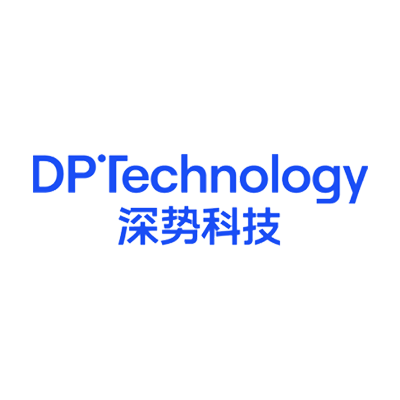DP Technology's Uni-Mol Docking v2: A Game-Changer in Drug Discovery
May 28, 2024, 3:39 am
Grand View Research
Location: United States, California, San Francisco
Employees: 501-1000
Founded date: 2014

Location: United States, Oregon, Portland
Employees: 501-1000
Founded date: 2013
In the realm of drug discovery, the process of molecular docking plays a pivotal role in predicting how small molecules interact with target proteins. DP Technology, a leader in AI for Science, has recently unveiled Uni-Mol Docking v2, a cutting-edge docking engine powered by artificial intelligence. This innovative model, open-sourced for the scientific community, is set to revolutionize the field of drug discovery by offering high accuracy predictions without the hefty computational costs.
The molecular docking market, a significant segment within drug discovery informatics, is projected to soar from USD 3 billion in 2023 to USD 8 billion by 2032. With the increasing adoption of advanced computational tools and investments in research and development by pharmaceutical companies, the demand for efficient screening methods like molecular docking is on the rise.
Traditional docking techniques, relying on physics and scoring-based methods, have given way to advanced deep learning and AI-based approaches. By leveraging complex molecular representations learned directly from data, deep learning models like Uni-Mol Docking v2 can capture intricate patterns and interactions, leading to more accurate and efficient predictions.
Uni-Mol Docking v2, based on a pre-trained AI model developed by DP Technology, has demonstrated superior performance compared to traditional algorithms like Autodock Vina. Achieving an impressive accuracy rate in predicting binding poses, Uni-Mol Docking v2 has overcome common challenges such as chirality inversions and steric clashes, ensuring chemically viable predictions.
The recent introduction of AlphaFold3, extending its capabilities to predict protein-ligand docking poses, has further highlighted the significance of Uni-Mol Docking v2 as a benchmark in the scientific community. DP Technology's commitment to open science is evident in their decision to open-source Uni-Mol Docking v2, along with its code and dataset, fostering collaboration and accelerating scientific discovery.
By actively contributing to open science projects and collaborating with global institutions, DP Technology is at the forefront of advancing scientific research. Their dedication to transparency and collaboration is driving meaningful progress across various fields, from material science to drug discovery. With the launch of OpenLAM and the development of the first Large Atom Model, DP Technology continues to push the boundaries of innovation in AI for Science.
In a world where collective advancement is key, DP Technology's Uni-Mol Docking v2 stands as a beacon of progress in the realm of drug discovery. By empowering the global scientific community with open-access tools and data, DP Technology is paving the way for a future where collaboration and innovation go hand in hand. Visit DP Technology's website to explore the possibilities of Uni-Mol Docking v2 and witness the transformative power of AI in scientific research.
The molecular docking market, a significant segment within drug discovery informatics, is projected to soar from USD 3 billion in 2023 to USD 8 billion by 2032. With the increasing adoption of advanced computational tools and investments in research and development by pharmaceutical companies, the demand for efficient screening methods like molecular docking is on the rise.
Traditional docking techniques, relying on physics and scoring-based methods, have given way to advanced deep learning and AI-based approaches. By leveraging complex molecular representations learned directly from data, deep learning models like Uni-Mol Docking v2 can capture intricate patterns and interactions, leading to more accurate and efficient predictions.
Uni-Mol Docking v2, based on a pre-trained AI model developed by DP Technology, has demonstrated superior performance compared to traditional algorithms like Autodock Vina. Achieving an impressive accuracy rate in predicting binding poses, Uni-Mol Docking v2 has overcome common challenges such as chirality inversions and steric clashes, ensuring chemically viable predictions.
The recent introduction of AlphaFold3, extending its capabilities to predict protein-ligand docking poses, has further highlighted the significance of Uni-Mol Docking v2 as a benchmark in the scientific community. DP Technology's commitment to open science is evident in their decision to open-source Uni-Mol Docking v2, along with its code and dataset, fostering collaboration and accelerating scientific discovery.
By actively contributing to open science projects and collaborating with global institutions, DP Technology is at the forefront of advancing scientific research. Their dedication to transparency and collaboration is driving meaningful progress across various fields, from material science to drug discovery. With the launch of OpenLAM and the development of the first Large Atom Model, DP Technology continues to push the boundaries of innovation in AI for Science.
In a world where collective advancement is key, DP Technology's Uni-Mol Docking v2 stands as a beacon of progress in the realm of drug discovery. By empowering the global scientific community with open-access tools and data, DP Technology is paving the way for a future where collaboration and innovation go hand in hand. Visit DP Technology's website to explore the possibilities of Uni-Mol Docking v2 and witness the transformative power of AI in scientific research.

